Over the past ten years, the Francis Collins Scholars (FCS) Program has had a transformative impact on the careers of early-career researchers in the field of neurofibromatosis type 1 (NF1) and related disorders. In interviews with Drs. Shruti Garg and Steven Rhodes, two outstanding scholars from the program, they shared their experiences and the role mentorship, collaboration, and perseverance have played in shaping their research journeys.
Early Inspirations and Encounters with NF1
For Dr. Shruti Garg, a child and adolescent psychiatrist and 2018 Francis Collins Scholar from Manchester, UK, her first encounter with NF1 came during her training years under the guidance of Dr. Sue Huson, a pioneer in NF1 research. Together, they studied the learning and behavioral difficulties faced by children with NF1. “We had some very interesting results,” Dr. Garg recalled, “and it led to more questions than answers, which fueled my interest in continuing research in this area.”
Similarly, Dr. Steven Rhodes, a pediatric oncologist in Indiana and 2020 Francis Collins Scholar, developed his passion for NF research during his college years. A key event was meeting Dr. Wade Clapp, who introduced him to NF research. “I remember him showing me an MRI scan of one of the first patients treated with a targeted therapy for their plexiform neurofibroma,” Dr. Rhodes said. This pivotal experience set him on the path to becoming a physician-scientist, leading him to focus on NF research in pediatrics.
The Role of Mentorship in Career Development
Both Dr. Garg and Dr. Rhodes credit the FCS Program for providing them with mentorship that has been pivotal to their success. Dr. Garg emphasized the value of mentorship from NTAP program leaders who inspired her to aim high. “They expected me to become the leading person in my particular area of NF1,” she shared. The support and encouragement from seasoned NF researchers helped her continue her groundbreaking work on autism spectrum conditions in children with NF1.
Dr. Rhodes echoed similar sentiments, citing his mentors like Drs. Clapp, Blakeley, and Riccardi as key figures in his professional development. “The program has allowed me to develop friendships and collaborations with colleagues from around the world,” he noted. These relationships have enriched his research, particularly his current work on the protein HGA2 and its role in malignant peripheral nerve sheath tumors (MPNST).
Collaboration and Networking Across the NF1 Research Community
The Francis Collins Scholars Program places a strong emphasis on collaboration, a factor that has significantly impacted both Dr. Garg and Dr. Rhodes. Dr. Garg, for example, has collaborated with FCS mentors on a DoD grant and hopes to collaborate with fellow neuropsychiatric-focused scholars like Dr. Tamar Green from Stanford University and Dr. Natalie Pride at The Children’s Hospital at Westmead, on joint funding applications. “It’s been incredible to see how those initial connections have grown into something much bigger,” she said.
Dr. Rhodes also highlighted the importance of collaboration, noting how the program’s resources allowed him to propel his projects forward and secure extramural funding. “The protected time to focus on NF research and patient care is something that few young faculty members get,” he explained, emphasizing time to form meaningful collaborations allowed him more opportunity to drive innovation in patient-focused research.
Overcoming Challenges and Advancing NF1 Research
Both Dr. Garg and Dr. Rhodes have encountered challenges in their research careers, often related to funding and balancing clinical and research responsibilities. For Dr. Garg, limited funding opportunities in the UK almost forced her to shift entirely into clinical practice. “The FCS Program support came at a critical juncture,” she said, allowing her to continue her NF1 research and expand into new areas like neuroimaging.
Dr. Rhodes, too, has faced challenges, but he remains determined to focus his research on improving patient outcomes. “Everything I do starts with the patient in mind,” he explained, adding that his research on HGA2 could lead to new therapies for patients with MPNST. “If it’s not going to help the patients I serve, I try not to pursue it. Time is too precious.”
Advice for Future Scholars
Both Dr. Garg and Dr. Rhodes offered valuable advice to future Francis Collins Scholars. For Dr. Garg, perseverance is key. She recalled receiving a book called Grit from Dr. Jaishri Blakeley, Executive Director of NTAP, which resonated deeply with her journey. “You will face failures and grant rejections, but you have to keep going. It’s all about perseverance.”
Dr. Rhodes emphasized the importance of mentorship and community within the NF field. “The NF community is special. The collaborations and support you receive from peers and mentors are things you’ll carry with you throughout your career,” he said. He also encouraged scholars to stay curious and patient-focused, quoting Dr. Riccardi: “Never lose the passion for discovery.”
As Dr. Garg reflected, “Supporting people at a crucial juncture in their careers ensures so much productivity in the field.” Dr. Rhodes, too, remains grateful for the program’s impact on his career, noting, “The program has completely reshaped my career and given me opportunities I never could have imagined.” Together, they are part of a community of scholars leading the way in NF1 research and offering hope to patients around the world.
What you need to know to apply
The Francis S. Collins Scholars Program is open to candidates who hold a health-professional degree permitting patient care and are in the final stages of post-doctoral training or within the first seven years of a faculty appointment. The program offers up to 100% salary support for 2-3 years, funding for research costs, tuition for relevant coursework, travel to scientific meetings, and mentor stipends.
